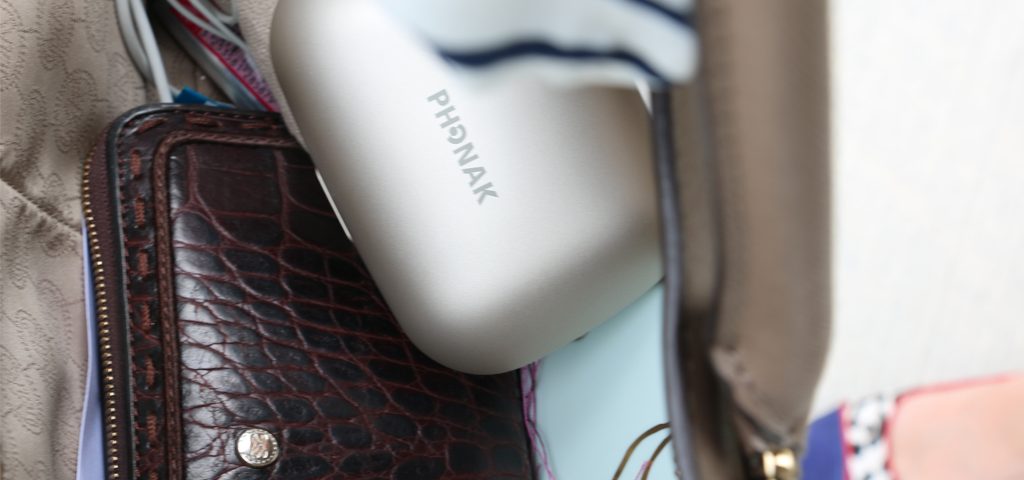
How my hearing technology has improved over the years
July 20, 2016
Ask Anna: Is there an easier way to change hearing aid batteries?
July 21, 20165 Reasons People Don’t Wear their Hearing Aids

It’s a familiar situation for many families.
A loved one’s hearing is declining, and after years of miscommunication and frustration, they finally visit an audiologist. They invest in hearing aids, but after a while, the hearing technology ends up in a drawer. So, why is it that some people don’t wear their hearing aids?
Here are the top 5 most common reasons people don’t wear their hearing aids:
Their hearing aids aren’t comfortable
Comfort can be a big issue, especially with old or ill-fitted hearing aids. Today, there are modern, sleeker hearing aids that are comfortable to wear all day, even if the user wears glasses. Hearing aids also come in a variety of models and colors. Phonak hearing aids, specifically, have been recognized with multiple design awards for the functionality, quality and design of its products. The housings of the new Audéo B hearing aids are even designed by color experts to reflect light in the way that hair and skin does, making them blend in better than ever.
If your loved one isn’t wearing their hearing aid, ask them if comfort is an issue. If the hearing aid is older than five years, it could be more likely that their earpiece is uncomfortable or that their hearing aid is not fit properly. Have them visit their audiologist or hearing care professional to have them adjusted, or learn about newer, sleeker options.
Their hearing aids don’t meet their sound expectations
Hearing aids are an investment, so it’s important that users feel like the technology is providing a benefit for them. If they don’t recognize a change in their hearing when using the technology, they might get frustrated, and think the cost of the hearing aids was not worth it. If your loved one feels like this, it’s important they visit their audiologist or hearing care professional, who can change the hearing aid settings.
Phonak hearing aids are re-programmable, so if there are specific hearing situations that are important for the user, such as listening to music or hearing friends over dinner at a loud restaurant talking in the car, encourage them to tell the audiologist, as they can re-program the hearing aids for enhanced experience in these settings. With the Phonak AutoSense OS technology, the hearing aid can automatically adapt to nearly any situation, to create more than 200 distinct settings to match the listening environment, while also giving audiologists the ability to enhance any of these listening situations that the user needs.
Their hearing aids are too difficult to care for
Hearing aids are small, delicate technologies that need to be cared for to ensure a long life. Because they are exposed to sweat, water, ear wax, dirt and dust on a regular basis, it’s important to clean and dry them. Additionally, to keep most hearing aids working, the user always needs fresh batteries on hand. Some people can find these tasks burdensome. There are solutions, however, that make these daily maintenance tasks easier.
The new rechargeable hearing aids from Phonak, the Phonak Audéo B-R, streamlines all these daily maintenance tasks, simplifying life. The rechargeable hearing aids are stored in a hard case that both dries and recharges the technology by simply placing the hearing aids in the case and closing the lid, helping maintain the hearing aids alongside normal daily care. Now, users don’t need to stumble with hearing aid batteries, or remember to buy new batteries every time they go to the store. Additionally, the drying case will ensure the receiver will be protected from daily exposure to sweat and moisture.
Their hearing aids are embarrassing
Despite advances in technology and look, hearing aids still hold a stigma. If your loved one is embarrassed by their hearing aids, encourage them to talk to their friends and family about how their hearing aids help them. Once the people around them understand how their hearing technology helps them enjoy life, they can get on with participating in conversations and listening to life’s wonderful sounds.
To better understand what people with hearing loss experience, listen to this Hearing Loss Simulator: Understanding mild and moderate hearing loss. Friends and family can also learn about 7 things you can do to communicate effectively with someone who has hearing loss and 11 Hearing Aid Myths You Shouldn’t Believe, to dispel outdated beliefs and stigmas against hearing aids and people with hearing loss.
Their hearing aids stopped providing a benefit
When you get to a certain age, it’s common to do routine health checks, such as blood pressure, cholesterol checks and eye tests, but hearing can get overlooked – even if they already have hearing loss. If your loved one hasn’t had their hearing re-checked for a few years, it’s possible that their severity of hearing loss has changed, making their hearing aids obsolete.
Encourage them to visit their audiologist to have their hearing tested, and to re-program their hearing aids, if necessary. Some small tweaks could be the difference between hearing a grandchild’s laugh, or listening to the birds chirp, again.
Still not sure how to address those hearing aids stored in a drawer? Here’s a look at three situations where people have tried – but given up on – their hearing aids, and how those frustrations could have been avoided.
- Author Details



